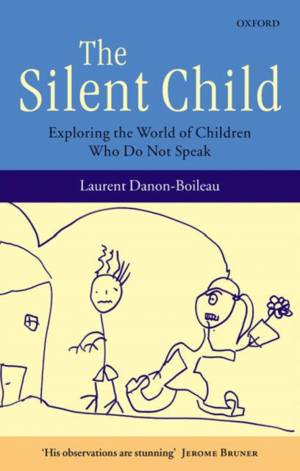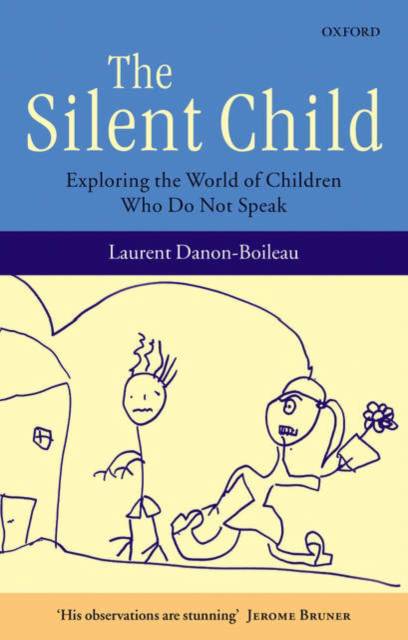
- Afhalen na 1 uur in een winkel met voorraad
- Gratis thuislevering in België vanaf € 30
- Ruim aanbod met 7 miljoen producten
- Afhalen na 1 uur in een winkel met voorraad
- Gratis thuislevering in België vanaf € 30
- Ruim aanbod met 7 miljoen producten
Zoeken
The Silent Child
Exploring the World of Children Who Do Not Speak
Laurent Danon-Boileau
Paperback | Engels
€ 31,95
+ 63 punten
Omschrijving
Laurent Danon-Boileau is one of France's most respected child psychoanalysts. In The Silent Child, he takes us into his office to watch him treat six children who cannot or will not speak.
Reminiscent of Oliver Sacks's The Man Who Mistook His Wife for a Hat, this intriguing book introduces us to patients of surpassing strangeness, children who suffer from severe psychological difficulties that block their ability to speak or read. For instance, we watch as Danon-Boileau has sessions with Kim, who could name objects correctly, but when trying to express herself, would lapse into a private, unintelligible language. She could use words to name animals, but to express her wishes or her memories, she seemed to prefer using her hands. We meet Benjamin, who could not clearly distinguish between his imaginary world and the real world, a child whose mind is so taken up with the imaginary that he has neither the time nor the mental space for learning. And Rachid, who, at the age of 4, did not use language to communicate, but could read numbers consisting of several digits and count objects up to twelve. Perhaps most interesting is watching Danon-Boileau's trying to help
these children, how he improvises, tries different approaches--playing games, drawing, reading, listening patiently, and using everyday objects in creative ways.
Offering a fascinating portrait of an eminent psychoanalyst at work as well as a gold mine of insight into the roots and nature of language, The Silent Child takes us inside the lives of six young children struggling against great obstacles to learn to speak and read.
Reminiscent of Oliver Sacks's The Man Who Mistook His Wife for a Hat, this intriguing book introduces us to patients of surpassing strangeness, children who suffer from severe psychological difficulties that block their ability to speak or read. For instance, we watch as Danon-Boileau has sessions with Kim, who could name objects correctly, but when trying to express herself, would lapse into a private, unintelligible language. She could use words to name animals, but to express her wishes or her memories, she seemed to prefer using her hands. We meet Benjamin, who could not clearly distinguish between his imaginary world and the real world, a child whose mind is so taken up with the imaginary that he has neither the time nor the mental space for learning. And Rachid, who, at the age of 4, did not use language to communicate, but could read numbers consisting of several digits and count objects up to twelve. Perhaps most interesting is watching Danon-Boileau's trying to help
these children, how he improvises, tries different approaches--playing games, drawing, reading, listening patiently, and using everyday objects in creative ways.
Offering a fascinating portrait of an eminent psychoanalyst at work as well as a gold mine of insight into the roots and nature of language, The Silent Child takes us inside the lives of six young children struggling against great obstacles to learn to speak and read.
Specificaties
Betrokkenen
- Auteur(s):
- Uitgeverij:
Inhoud
- Aantal bladzijden:
- 198
- Taal:
- Engels
Eigenschappen
- Productcode (EAN):
- 9780199214044
- Verschijningsdatum:
- 5/04/2007
- Uitvoering:
- Paperback
- Formaat:
- Trade paperback (VS)
- Afmetingen:
- 213 mm x 137 mm
- Gewicht:
- 255 g

Alleen bij Standaard Boekhandel
+ 63 punten op je klantenkaart van Standaard Boekhandel
Beoordelingen
We publiceren alleen reviews die voldoen aan de voorwaarden voor reviews. Bekijk onze voorwaarden voor reviews.











